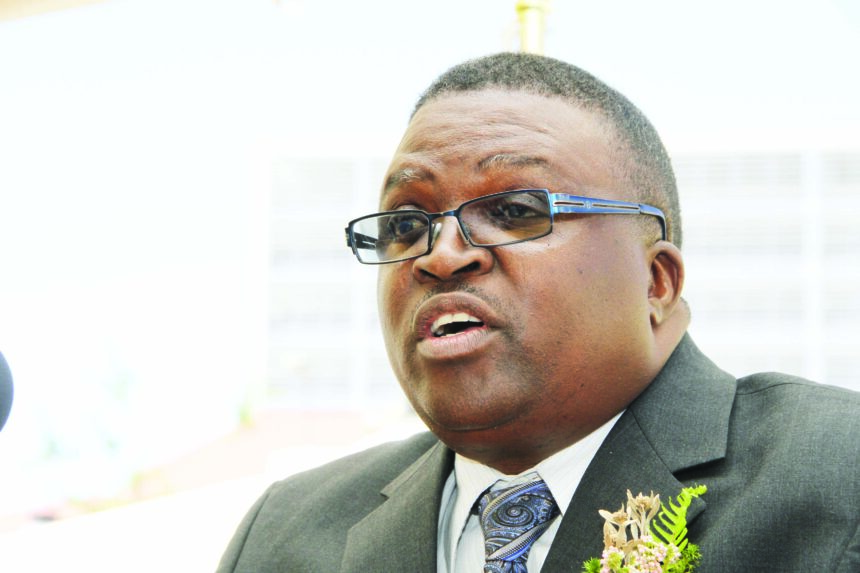Auditor general Junias Kandjeke has uncovered substantial financial and operational challenges facing the City of Windhoek, highlighting issues which may threaten its financial sustainability.
Perhaps the most critical finding is the municipality’s apparent state of commercial insolvency, as their current liabilities have consistently outpaced their assets.
As of 30 June 2023, the municipality reported liabilities amounting to N$1.8 billion against current assets of N$1.1 billion, leaving a shortfall of more than N$723 million.
In 2022, the deficit was even higher at N$1.1 billion.
The report further indicates that the municipality incurred an annual deficit of more than N$344 million in 2023, and more than N$734 million in 2022, further aggravating their financial stability.
“These conditions indicate material uncertainties that cast significant doubt on the municipality’s ability to meet its obligations or maintain its service delivery levels in the foreseeable future,” Kandjeke said.
Despite these pressing concerns, the municipality has yet to provide a plan for turning around this deficit to achieve financial sustainability, the worried AG reported further.
His report also noted discrepancies between the budgeted and actual financial figures, suggesting the existence of financial planning challenges.
For instance, revenue from traffic fines and outdoor advertising fees exceeded expectations, while other sources such as water and electricity tariffs fell short.
Additionally, delayed project implementation due to late budget approvals contributed to both savings and unfavourable variances.
Kandjeke’s findings cover the financial years ending 30 June 2022 and 2023.
Transparency
They further indicate ongoing problems with transparency, compliance and operational deficits, casting doubt on the municipality’s financial management practices.
One of the primary concerns in the report is the municipality’s failure to disclose its accounting policies related to public-private partnership (PPP) transactions.
“The financial statements do not disclose the accounting policy for PPP transactions, and there’s no record of the transactions and balances associated with these partnerships,” Kandjeke stated.
This lack of documentation obstructed the auditors from verifying essential figures related to property, plant, equipment and loans connected to PPPs, compromising the transparency of municipal assets and liabilities.
This gap in accounting practices also led auditors to question the municipality’s accumulated surplus and financial accuracy.
“Without these disclosures, it’s impossible to assure the public of the fairness in the presentation of the financial statements,” he added.
Directives
The municipality reportedly ignored a government directive limiting salary increments to 3%, and instead implemented a 5% increase agreed with the Namibia Public Workers Union.
This decision inflated employee costs by N$72 million in 2023, and N$24 million in 2022.
“The occurrence of this expenditure could not be confirmed by auditors, given that it exceeds ministerial approval,” Kandjeke stated, calling into question the municipality’s compliance with regulatory salary limits.
This statement may, however, be contradictory to the city’s CEO Moses Matyayi’s views, who earlier this year said there were no salary increases granted in the last four years since 2020.
At the time, he was responding to Kandjeke’s conclusion of a qualified audit opinion for the 2020/2021 financial audit report.
“We are actively crafting a financial recovery plan aimed at securing long-term financial sustainability. Our focus is not only on developing a robust strategy, but also on ensuring its effective execution to achieve our goals in line with the strategic plan 2022-2027,” he stated.
Manipulation
Another area of concern involves potential data manipulation within the SOLAR accounting system.
A preliminary investigation by the ICT and internal audit departments revealed possible irregularities. But as the report states, this was a high-level assessment, not a forensic investigation.
“The full extent and impact of this potential data manipulation on the financial statements for 2023 cannot be determined at this stage,” Kandjeke warned.
The municipality’s reliance on non-expert assessments leaves lingering questions about the accuracy of the figures reported.
Additionally, the auditors were also unable to confirm the completeness of the municipality’s land reconciliation, which details land sizes and use categories under its jurisdiction.
“The accuracy and completeness of land assets recognised in the financial statements remain uncertain due to insufficient reconciliation,” the AG reported.
Ongoing challenges
This is not the first time Kandjeke has reported concerns about the city’s financial health.
Even in the 2020/2021 financial audit report tabled in parliament mid-this year, he indicated that the city does not have a plan how it will turn around its commercial insolvency and the deficit-making position in the foreseeable future.
During those years, the municipality’s liabilities of N$1.9 billion exceeded its assets of N$942.56 million in 2021.
It also incurred a deficit of N$482.25 million in 2020.
In 2022, Independent Patriots for Change (IPC) Windhoek councillor Jürgen Hecht painted a bleak picture of the municipality, showing a city in financial distress, with barely any room to manoeuvre.
“No commercial enterprise would have survived such amounts of losses, and would have been declared bankrupt within two to three years… This means the City of Windhoek cannot settle its current expenses and liabilities by means of its cash resources and outstanding debtors,” he emphasised at the time.



